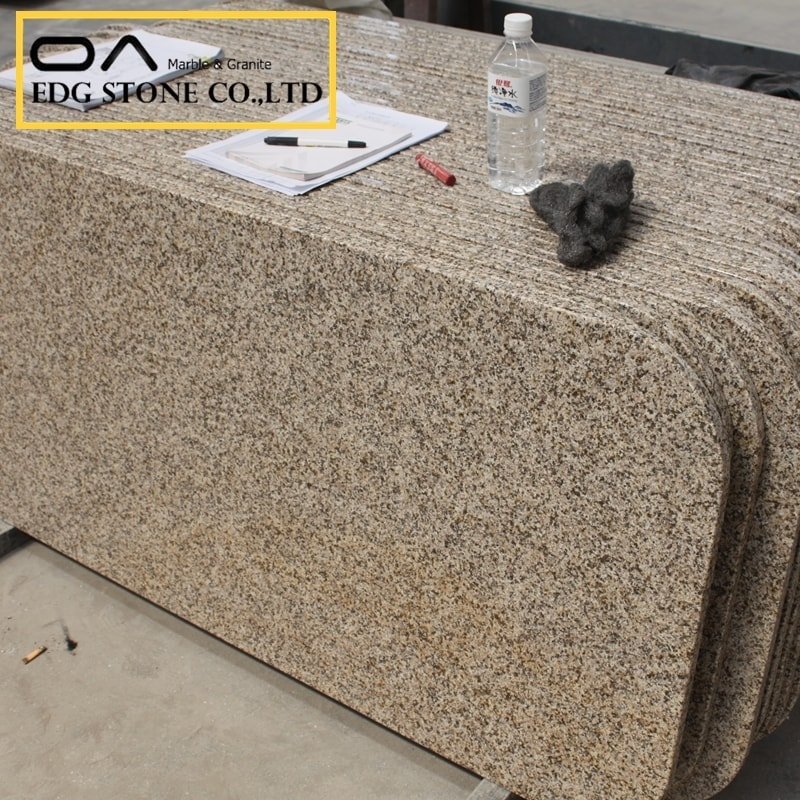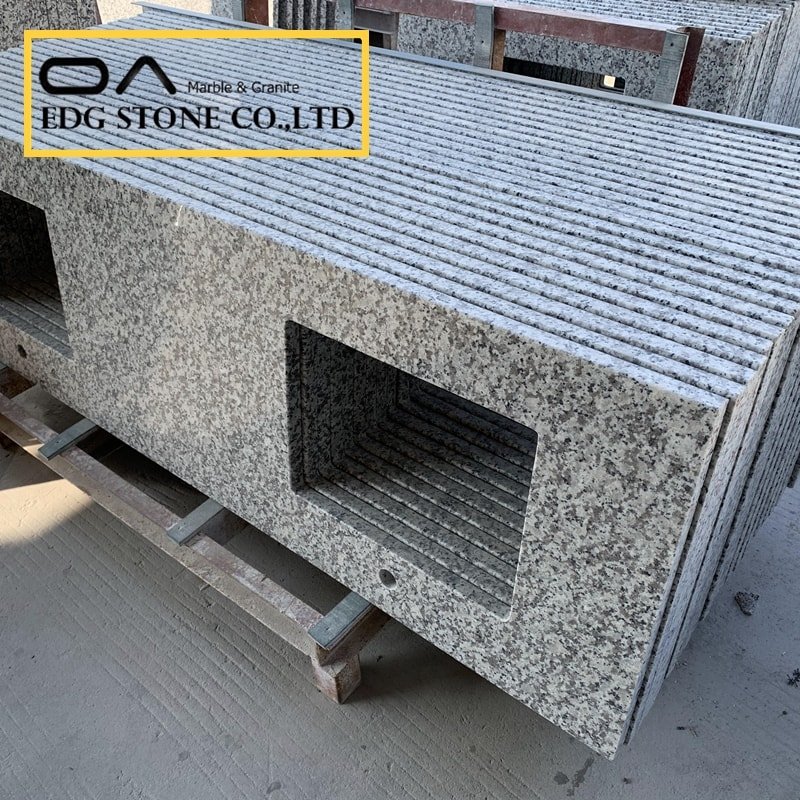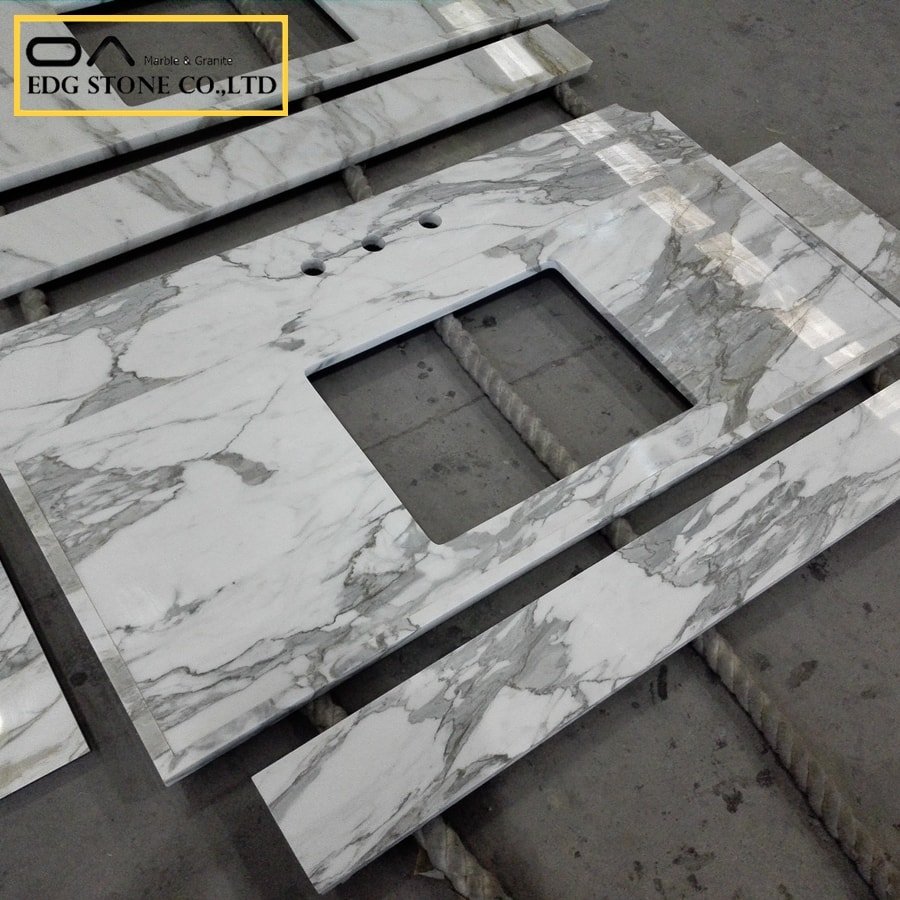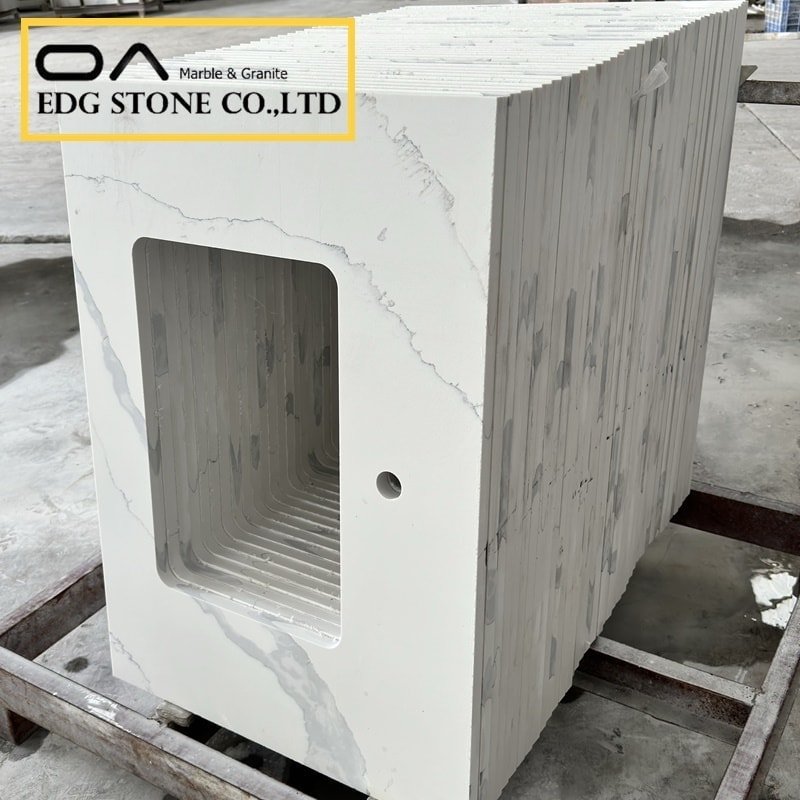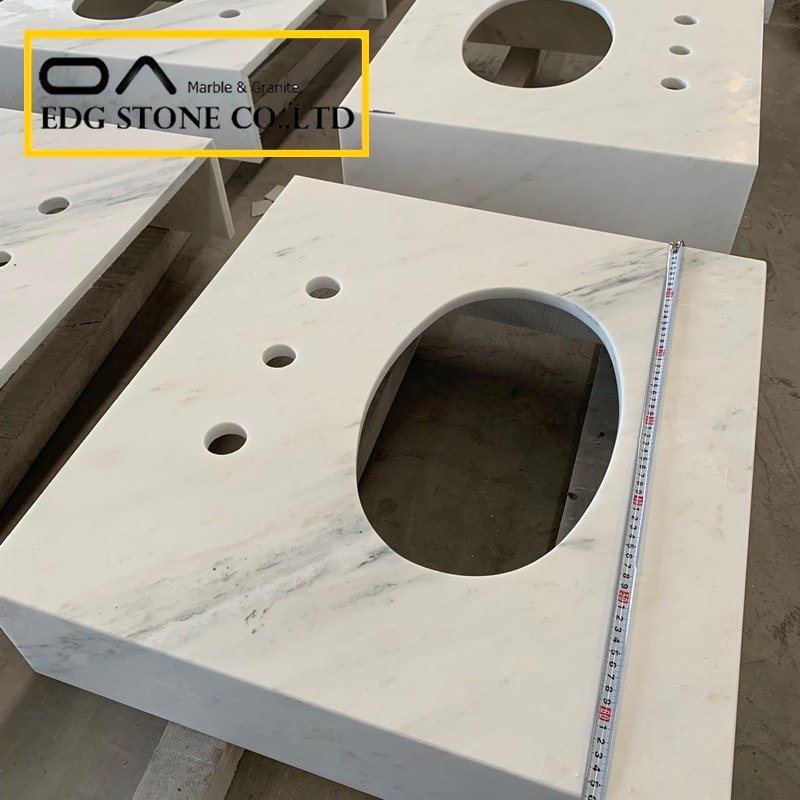How to Choose the Best Material for Kitchen Countertops: Expert Insights & Research
When it comes to remodeling your kitchen, the countertop material can make or break both aesthetics and functionality. So, what is the best material for kitchen countertops? In short, quartz emerges as the top all-around choice due to its remarkable blend of durability, low maintenance, and design versatility. Engineered from 90–95% natural quartz crystals bound with resin, quartz offers superior scratch, stain, and heat resistance—qualities confirmed by Consumer Reports, which ranks quartz at the top of its countertop tests for “busy kitchens.”
However, “best” can vary by budget, style, and use case. Granite remains a popular natural stone, prized for its unique veining and high heat tolerance; quartzite offers an ultra-durable, natural marble-like aesthetic; marble delivers unmatched luxury but demands meticulous care; solid surface, laminate, butcher block, and concrete each have strong use cases for cost-effective or specialized applications. The Spruce. In the coming sections, we’ll dive deep into each material’s pros and cons, cite scientific studies and expert opinions, and provide real-world case studies to guide your decision.

Best countertop material for bathroom
Types of Kitchen Countertops
The vast array of countertop materials can be overwhelming. Here, we break down the principal types, backed by expert analysis and durability data.
Quartz Countertops
Pros: Non-porous, no sealing, extremely scratch- and stain-resistant, uniform appearance in many colors and patterns.
Cons: Sensitive to prolonged high heat—use trivets; edges can chip under heavy impact.
Data: Consumer Reports notes quartz led in tests against cuts, heat, and stains in a simulated busy kitchen environment.
Granite Countertops
Pros: Unique natural patterns, excellent heat resistance, and high scratch resistance when sealed.
Cons: Porous; requires sealing every 1–3 years; edges can chip.
Expert Opinion: Real Simple cites National Kitchen & Bath Association data showing granite demand plateauing as quartz surges in popularity.
Quartzite Countertops
Pros: Natural stone with marble-like veining, extremely hard, heat and scratch resistant.
Cons: More expensive than granite; still requires periodic sealing.
Scientific Insight: University of Florence studies on silicate rocks confirm quartzite’s Mohs hardness ~7, offering unequaled durability among natural stones.
Marble Countertops
Pros: Timeless beauty, heat tolerance, valued in luxury kitchens.
Cons: Porous; prone to scratching, etching, and staining; high maintenance.
Consumer Reports Notes: Marble scored lower due to susceptibility to surface damage under acidic spills.
Solid Surface (e.g., Corian)
Pros: Seamless installations, mild scratch resistance, easy to repair, non-porous.
Cons: Can melt under high heat, less scratch resistant than stone.
Data: The Spruce ranks solid surface as cost-effective and resilient in moderate-use scenarios.
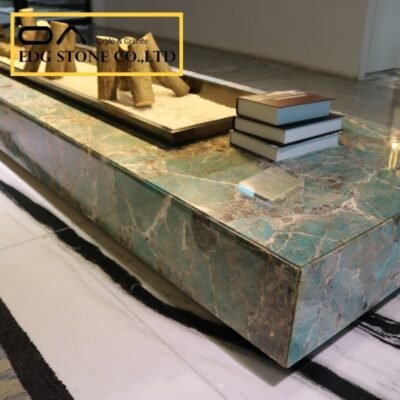
Quartzite Countertops
Laminate Countertops
Pros: Most affordable (often under $20 per sq ft), wide design range, scratch and chip resistant.
Cons: Susceptible to heat damage and delamination; edges can peel.
Industry Survey: John Burns Research reports laminate still dominates budget remodel segments despite premium stone growth.
Butcher Block Countertops
Pros: Warm wood aesthetic, can be sanded to remove scratches, ideal for food prep.
Cons: Requires regular oiling, prone to water damage, and cuts.
Expert Tip: Home Innovation Research Labs advises sealing around sinks to prevent moisture ingress.
Concrete Countertops
Pros: Fully customizable shapes and colors, very heat and scratch resistant when sealed.
Cons: Prone to hairline cracks, requires frequent sealing, and heavy installation.
Consumer Reports Insight: Concrete is placed in the mid-tier for durability but flagged for maintenance needs.
Tile Countertops
Pros: Highly affordable, heat resistant, and vast tile design options.
Cons: Grout lines are prone to staining; uneven surface.
Data: The Spruce highlights tile as budget-friendly but less smooth for prep work. The Spruce.
Stainless Steel Countertops
Pros: Heatproof, non-porous, industrial look, hygienic.
Cons: Prone to scratching and denting; shows fingerprints readily.
Expert Opinion: Architectural Digest suggests stainless steel for high-use, commercial-inspired kitchens Architectural Digest.
Soapstone Countertops
Pros: Heat and stain resistant, smooth hand feel, develops patina.
Cons: Soft—scratches easily; limited color range.
Data: Soapstone’s Mohs hardness ~2.5–5.5 means minor scratches are fixable by gentle sanding.
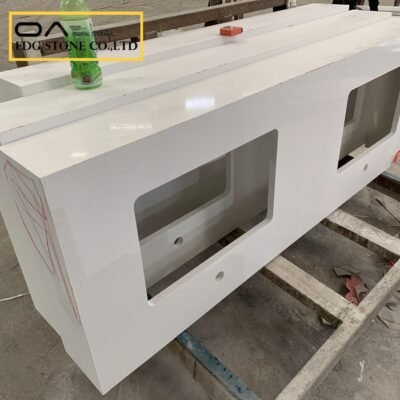
Best kitchen countertops for the money
Best Countertop Material for Bathroom
Bathroom surfaces face similar demands but often with more water exposure and less high-heat risk. Quartz again ranks highly due to non-porosity and low maintenance, followed by solid surface and porcelain tile.
Quartz: No sealing, unaffected by bathroom chemicals.
Solid Surface: Seamless sinks and backsplashes are possible.
Porcelain/Tile: Waterproof, can match shower tile.
Scientific Insight: Home Innovation data shows quartz dominating bathroom countertop adoption since 2022 due to practical durability.
Best Kitchen Countertops for the Money
For budget-savvy remodels, consider:
Laminate: Lowest material and install cost, $10–$40 per sq ft installed.
Butcher Block: $30–$70 per sq ft; offers warmth at mid-range price.
Solid Surface: $40–$80; repairable and versatile.
Case Study: A Columbus, Ohio, kitchen renovation used high-pressure laminate for under $1,500, achieving a modern look with budget to spare. Bad Lizard Granite & Quartz.
Best Countertop for Kitchen Island
Kitchen islands often serve as focal points; durable, stylish surfaces are key.
Quartz: Uniform slabs, long overhangs possible, low upkeep.
Quartzite: Premium look and extreme durability.
Butcher Block: Ideal for prep zones integrated into islands.
Expert View: JSB Home Solutions cites quartz as “best all-around” for islands due to its combination of function and fashion.
Stone Countertop: Natural vs. Engineered
Natural Stone
Granite & Quartzite: Unique, durable, heat-resistant.
Marble: High-end luxury, high maintenance.
Soapstone & Slate: Distinct aesthetics, variable hardness.
Engineered Stone
Quartz: Combines engineered consistency with natural beauty.
Porcelain Slabs: Ultra-thin, heatproof, uniform patterns.
Scientific Perspective: Testing by Consumer Reports shows engineered quartz resists stains and cuts more effectively than most natural stones.
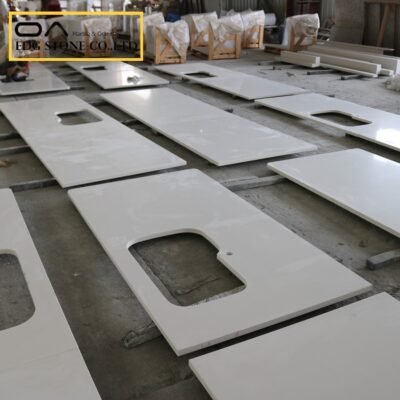
Best countertop for kitchen island
Best Stone for Kitchen Countertops
Among natural stones, quartzite and granite lead in overall performance:
Quartzite: Mohs ~7, excellent heat and scratch resistance.
Granite: Mohs ~6–7, highly heat tolerant; wide color palette.
Market Trend: Despite marble’s cachet, granite and quartzite remain the top stone choices for U.S. kitchens as quartz adoption soars, Real Simple.
Showcasing Practical Applications and Case Studies
Case Study 1: Luxury Renovation in San Francisco
Project: Full kitchen remodel with Calacatta quartzite island and perimeter granite.
Outcome: Homeowners praised the island’s durability for daily cooking and its seamless integration with white cabinetry.
Feedback: “No stains, no sealing, and still looks brand new after five years,” they report.
Case Study 2: Budget Makeover in Columbus, Ohio
Project: 8×10 ft kitchen using high-pressure laminate counters and butcher block island.
Outcome: Completed under $5,000; achieved modern farmhouse style.
Feedback: “Our laminate holds up to our busy family’s spills, and the wood island adds warmth,” noted the homeowner.
Case Study 3: Bathroom Vanity Upgrade in Miami
Project: Porcelain slab vanity top with integrated sink, matched to floor tile.
Outcome: Leak-proof, hygienic surface requiring zero maintenance.
Feedback: “The seamless look elevates our bathroom’s design, and we never worry about mold,” reported the designer.
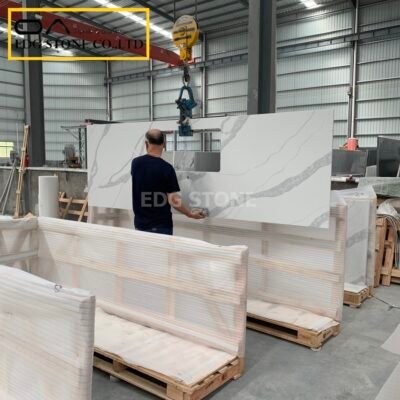
Best stone for kitchen countertops
Conclusion: Clear Answers and Recommendations
What is the best material for kitchen countertops?
Answer: For most homeowners, quartz stands out as the best overall, balancing durability, easy maintenance, and design versatility. For natural stone enthusiasts, quartzite and granite excel in heat and scratch resistance, while marble remains a luxury choice requiring upkeep. Budget-conscious projects benefit most from laminate, solid surface, or butcher block. Selecting the right material involves weighing daily use, maintenance willingness, aesthetic goals, and budget.
50 SEO-Friendly Tags
Kitchen top material, Best countertop material for bathroom, Best kitchen countertops for the money, Best countertop for kitchen island, Quartz countertops, Types of kitchen countertops, Stone countertop, Best stone for kitchen countertops, quartz kitchen tops, granite countertops supplier, quartz countertops wholesale, marble countertops factory, butcher block countertops manufacturer, cheap kitchen countertops, buy quartz countertops, kitchen tops China, high-quality quartz countertops, slate countertops supplier, porcelain slab wholesaler, laminate countertops factory, solid surface manufacturer, soapstone countertops cheap, quartzite countertops China, engineered stone supplier, granite slab wholesale, marble slab factory, butcher block supplier, buy butcher block, high-quality butcher block, concrete countertops manufacturer, stainless steel countertops supplier, kitchen island quartz, bathroom vanity quartz, affordable countertops, countertop price comparison, countertop durability research, consumer reports countertops, kitchen design trends, countertop maintenance tips, countertop case studies, countertop testimonials, home renovation countertops, modern kitchen countertops, rustic countertops design, sustainable countertop materials, eco-friendly countertops, DIY countertop installation, countertop care guide, luxury kitchen countertops.
